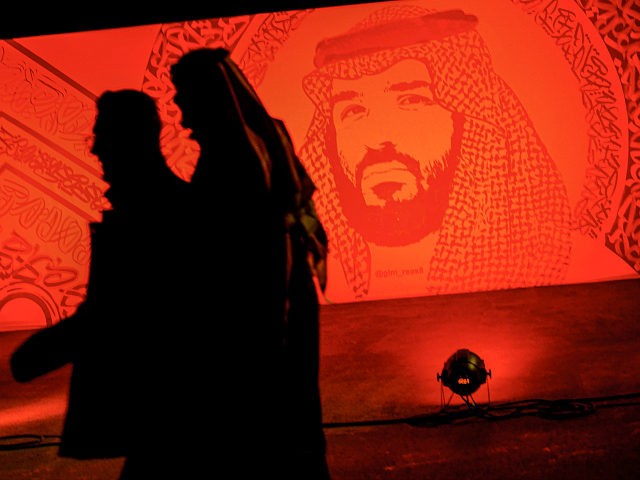Saudi Arabia condemned cartoons on Tuesday in response to the beheading of a French schoolteacher by a radical Islamist for showing students illustrations of Muhammad — The kingdom did not condemn the beheading itself.
The statement in question was published by the Kingdom of Saudi Arabia and not attributed to any official by name. It asserted that Riyadh “rejects any attempts to link Islam with terrorism.” The largest nations of the Islamic world have united to condemn French President Emmanuel Macron this week for awarding the schoolteacher, Samuel Paty, France’s highest civilian honor for giving his life in the name of free expression and launching a crackdown on radical Islam in France.
Paty showed students illustrations by the French satirical magazine Charlie Hebdo during a class on civics, reportedly warning Muslim students and allowing them not to attend the class if it would offend them. After parents complained — and reportedly demanded a fatwa against Paty, an 18-year-old Chechen jihadist beheaded him on October 16.
In response to the beheading, Saudi Arabia condemned the cartoons.
“The Kingdom of Saudi Arabia rejects any attempts to link Islam with terrorism and condemns the offensive cartoons of the Prophet of Guidance and the Messenger of Peace Mohammed bin Abdullah, may God bless him and grant him peace, or any of the messengers, peace be upon them,” the government statement, from an unnamed “source,” read.
#Statement | An official source at @KSAMOFA: We reject any attempt to link Islam with terrorism, and we denounce the offensive cartoons of the Prophet of Guidance and the Messenger of Peace, or any of the prophets and messengers, peace be upon them.
— Foreign Ministry 🇸 (@KSAmofaEN) October 27, 2020
These assertions followed remarks from the Council of Senior Scholars, the nation’s most powerful Islamic agency, last week that linked Islam to terrorism by asserting that Muslim “extremists” benefit from the cartoons because they justify their violence.
Elsewhere in the world, Iranian President Hassan Rouhani asserted on Wednesday that “every single European is in debt to the Prophet” [Muhammad], despite the extreme violence early Muslims visited on Europe, and that defending cartoons is “encouraging violence.” Egyptian President Abdel Fattah al-Sisi similarly asserted, “if some have the freedom to express what is in their thoughts I imagine that this stops when it comes to offending the feelings of more than 1.5 billion people.”
In Chechnya, where Paty’s murderer came from, local leader Ramzan Kadyrov said the cartoons force Muslims to act violently.
“You are forcing people into terrorism, pushing people towards it, not leaving them any choice, creating the conditions for the growth of extremism in young people’s heads,” Kadyrov said in an Instagram post directed at Macron. “You can boldly call yourself the leader and inspiration of terrorism in your country.”
Macron has rejected the proposition of censoring his nation to appease the Muslim world.
“One of our countrymen was assassinated because he was teaching, because he was teaching his students about the freedom of expression, the freedom to believe or not believe,” Macron said in the aftermath of Paty’s killing. “It’s not a coincidence if tonight a teacher was struck, because the terrorist wanted to attack the values of the public, its light, the possibility to make our children, no matter where they come from, no matter what they believe or not believe, no matter what their religion is, to make them free citizens.”
“We will not give up cartoons,” he later asserted.

COMMENTS
Please let us know if you're having issues with commenting.